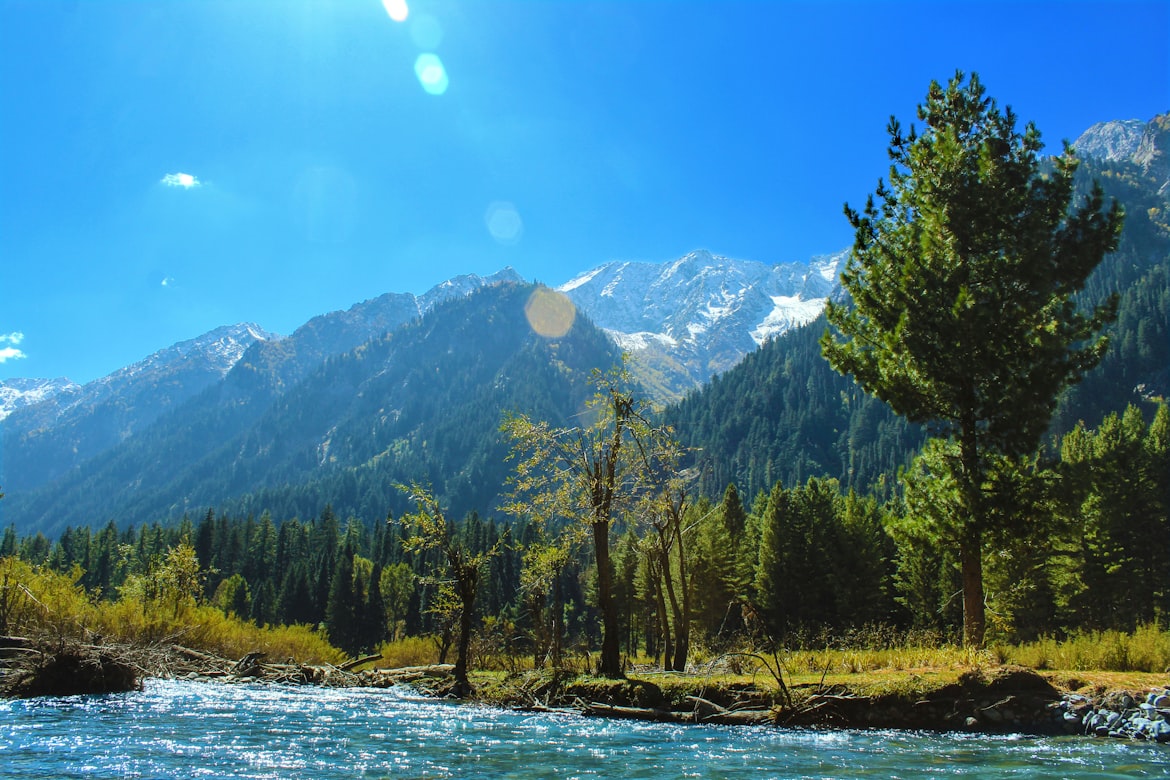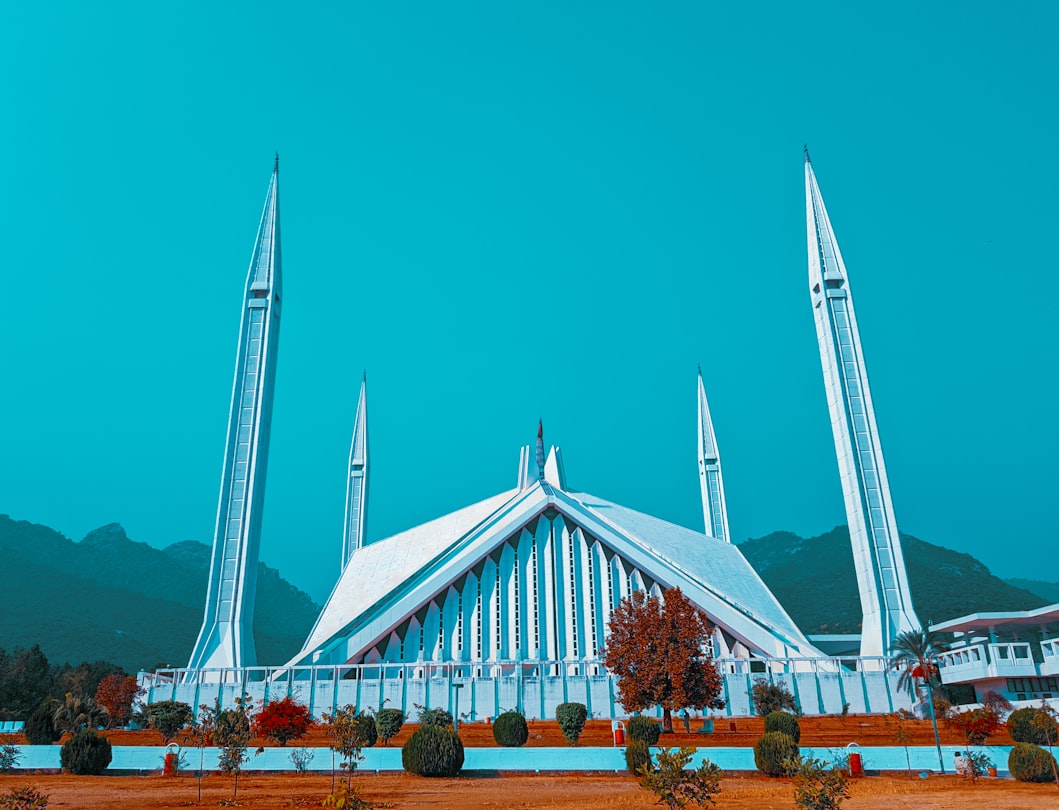Top Attractions
Pakistan is home to a wealth of diverse and awe-inspiring attractions, ranging from ancient ruins to breathtaking natural landscapes. One of the most iconic sites is the Badshahi Mosque in Lahore, a stunning example of Mughal architecture that dates back to the 17th century. The ancient city of Mohenjo-daro, a UNESCO World Heritage Site, offers a glimpse into one of the world's earliest urban civilizations. The Hunza Valley in the Gilgit-Baltistan region captivates visitors with its snow-capped peaks, turquoise lakes, and warm hospitality. Skardu and Fairy Meadows are dream destinations for trekkers and nature lovers, providing access to some of the world's tallest mountains, including K2. Meanwhile, the bustling city of Karachi offers historical British colonial architecture, vibrant bazaars, and coastal beaches, making it a well-rounded urban stop.
Local Dishes
Pakistani cuisine is rich, flavorful, and highly regional. In Lahore, food lovers indulge in dishes like nihari, a slow-cooked beef stew often enjoyed for breakfast, or seekh kebabs grilled over open flames. Biryani, a spiced rice dish layered with meat, is a national favorite, with each city offering its own unique variation. In Peshawar, chapli kebabs made of minced meat and aromatic spices are a must-try. Karahi, a tomato-based meat dish cooked in a wok-like pan, is popular across the country and often eaten with naan. Street food delights like gol gappay (crispy hollow spheres filled with spicy water) and samosas are also found throughout local markets and roadside stalls.
Transportation Tips
Traveling around Pakistan can be an adventure in itself. Domestic flights are available and often recommended for long-distance travel, especially between major cities and the northern mountain regions. Trains connect most cities, offering economy and air-conditioned business class compartments. However, the road network is often the most practical means of travel. Intercity buses, such as Daewoo and Faisal Movers, are comfortable and reliable. In urban centers, rickshaws and ride-hailing apps like Careem and InDrive provide convenient local transport. Be prepared for occasional traffic congestion, especially in larger cities like Lahore and Karachi.
Budget Travel Tips
Pakistan is generally affordable for budget-conscious travelers. Accommodations in smaller towns and guesthouses are reasonably priced, and street food or local dhabas offer hearty meals for under a few dollars. Public buses and shared vans are the cheapest modes of transportation, though less comfortable than private services. Bargaining is customary in markets and with rickshaw drivers, so don’t hesitate to negotiate for a fair price. Many historical sites and natural wonders are free or have minimal entry fees, making it easy to explore without overspending.
Safety Info
While parts of Pakistan have faced safety concerns in the past, the overall security situation has improved considerably, especially in major cities and tourist destinations. It’s wise to register with your embassy, keep informed about local developments, and avoid regions near the Afghan border unless traveling with a guided tour. Local police and tourism authorities have set up tourist police in areas like Lahore and Murree for added assistance. Exercise standard precautions, such as avoiding solo travel at night and securing your belongings.
Cultural Etiquette
Pakistan is a conservative country with deep-rooted Islamic traditions. Dress modestly, with women advised to wear loose-fitting clothing and a headscarf in more rural or religious areas. Always remove shoes before entering someone’s home or a mosque. Greetings often involve placing the right hand over the heart or offering a handshake. Public displays of affection are discouraged. Hospitality is a cornerstone of Pakistani culture, so if you’re invited for a meal or tea, it’s customary to accept and express gratitude.
Travel Style Fit
Pakistan is best suited for adventurous, culturally curious travelers who enjoy off-the-beaten-path experiences and don’t mind a bit of logistical challenge. Backpackers and nature lovers will revel in the mountain treks, while history buffs will be enthralled by the country’s archaeological wonders. Photography enthusiasts will find no shortage of stunning landscapes and colorful street scenes. While not yet a mainstream destination, Pakistan rewards those willing to step outside their comfort zone with genuine hospitality, unforgettable scenery, and a deeply enriching cultural experience.

Best Time to Visit
The best time to visit Pakistan largely depends on the region. The northern areas, including Hunza, Skardu, and Swat, are best explored between May and October when the weather is mild and trails are open. For the southern plains and cities like Karachi or Lahore, the cooler months of November to February are ideal, as summer temperatures can soar above 40°C (104°F). Spring (March to April) brings blooming flowers and colorful festivals, while autumn (September to October) offers clear skies and pleasant weather across most regions.
Accommodation Recommendations
For budget travelers, hostels and guesthouses such as Wanderlust Hostel in Lahore and Madina Hotel in Skardu offer clean, basic accommodations with communal atmospheres, ideal for backpackers. Mid-range travelers can enjoy places like Luxus Hunza or Hotel One in various cities, offering better amenities, breakfast, and comfortable rooms at reasonable prices. For those seeking luxury, consider Serena Hotels, which have branches in Islamabad, Swat, and Gilgit, offering elegant rooms, fine dining, and high-end service. The Pearl Continental chain is another premium option with locations in major cities, known for top-tier amenities and security.
Languages Spoken
Urdu is the national language and widely understood throughout the country, while English is commonly used in business, education, and by many locals in cities. Regional languages include Punjabi, Sindhi, Pashto, and Balochi, with each province having its own linguistic identity. Learning a few basic Urdu phrases can go a long way in creating positive interactions with locals.
Currency
The official currency is the Pakistani Rupee (PKR). Cash is king in most places, especially in rural areas, though credit and debit cards are accepted in urban hotels and upscale restaurants. ATMs are widely available in cities but may not always work with international cards, so it's advisable to carry some local currency when traveling outside urban areas.
Common Traveler Mistakes to Avoid
One common mistake is underestimating travel times due to the country's vast terrain and varying road conditions—always plan for delays. Some travelers also forget to dress modestly, which can attract unwanted attention. Ignoring local customs or being overly assertive in negotiations may come across as disrespectful. Another frequent error is not carrying cash when traveling to remote areas, as card facilities are limited outside of cities. Lastly, skipping local guides in regions like Skardu or Chitral can result in missed cultural and natural insights.
Essential Apps & Tools
Apps like Careem and InDrive are vital for booking rides in cities. Google Translate with the Urdu pack downloaded helps break language barriers, while Maps.me or Google Maps are indispensable for navigating rural roads. The Pakistan Tourism Development Corporation (PTDC) app offers official travel information, and WhatsApp is the primary communication tool for locals and businesses. Booking.com and Agoda are useful for hotel reservations, and XE Currency helps with real-time exchange rates.
Suggested Itinerary Styles
A two-week itinerary might begin in Lahore, soaking in the historic sites and culinary delights, followed by a train or flight to Islamabad for a mix of modernity and nature. From there, head north to Hunza or Skardu for a few days of hiking, glacier views, and cultural immersion. If time allows, swing south to Karachi for a taste of coastal life and colonial architecture. Each leg of the journey offers contrasting scenery and experiences, making for a well-rounded trip.
Fun Facts
Pakistan is home to the second-highest mountain in the world, K2, part of the breathtaking Karakoram Range. It also houses the world’s largest man-made irrigation system. The country has a rich literary and artistic tradition, producing renowned poets like Allama Iqbal and musical legends such as Nusrat Fateh Ali Khan. Additionally, Pakistan has one of the world’s youngest populations, with over 60% under the age of 30, bringing a vibrant energy to its cultural landscape.
